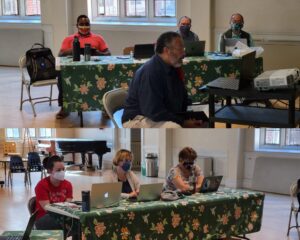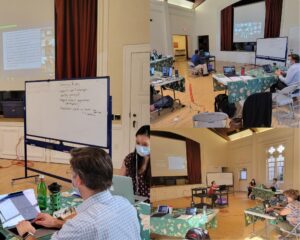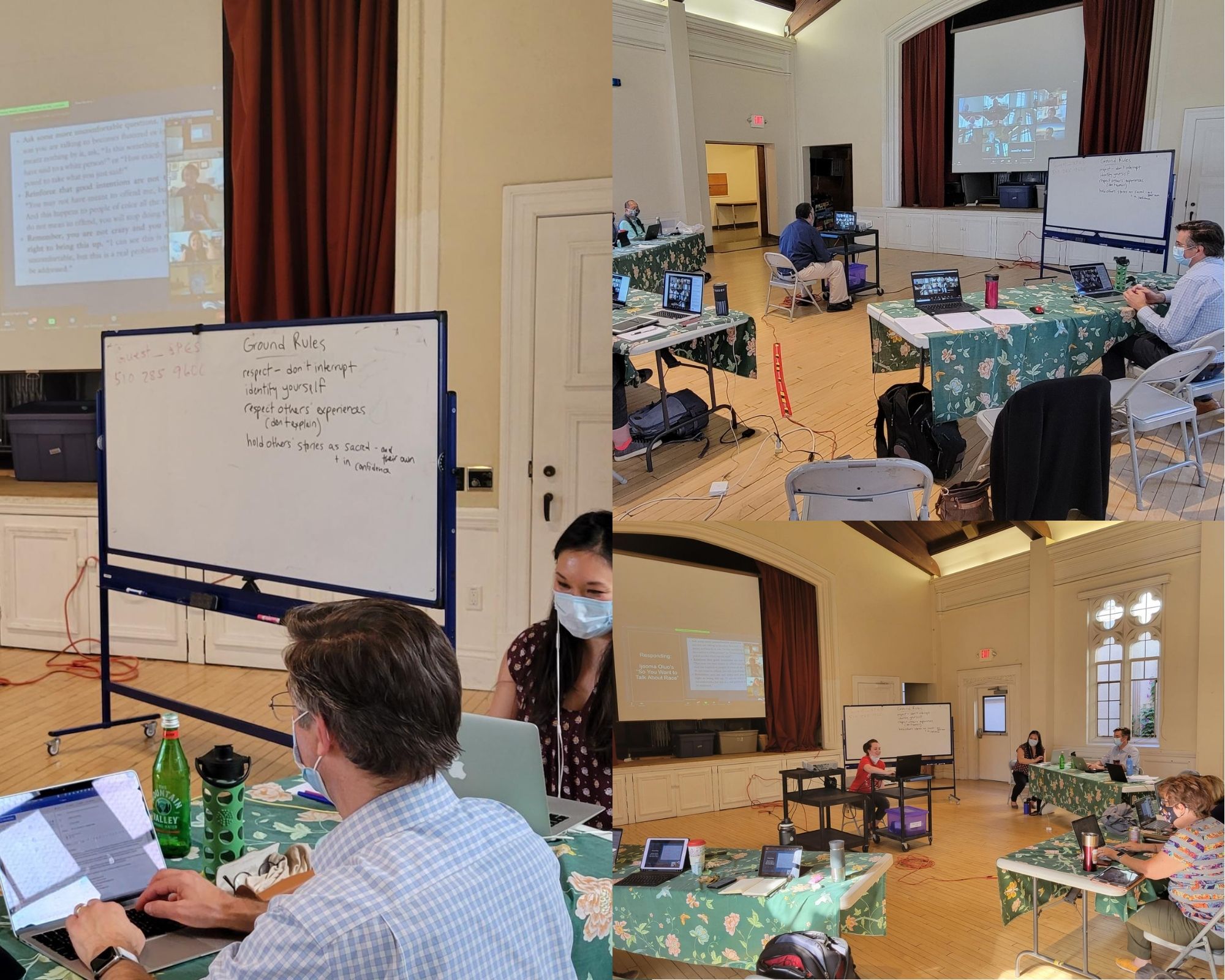The deputation of the Diocese of California took part in a day-long anti-racism training on October 2 to prepare for the upcoming General Convention. As part of the training, the group, which included deputies and alternate deputies, reviewed the Racial Justice Audit of Episcopal Leadership and discussed manifestations of white supremacy at General Convention.
They hope that other deputations will soon follow suit. At its 2020 convention, the Diocese of California voted to send a C resolution to the 80th General Convention that would change the House of Deputies Rules of Order to call for each deputation to take anti-racism and racial reconciliation training. “We wanted to model this for other deputations,” Deputy Ruth Meyers, deputation co-chair, said.

During the morning session, participants used a handout based on the audit’s findings to discuss their backgrounds and experiences of racism. At first, the discussion was academic, Deputy Debbie Low-Skinner said. “I was the only one that kind of said, isn’t it interesting that you’re all speaking and using the word ‘social construct.’ [Social construct] doesn’t get to what racism is. It has psychological and emotional effects as well.”
The conversation became more personal after the deputation had “been working together for a while and thought we knew each other,” Alternate Deputy Laura Curlin said.
The discussion made it clear “what language people were speaking when it came to racism,” Alternate Deputy Mauricio Wilson said.
In the afternoon session, three consultants from Mountaintop Coaching and Consulting gave a presentation on manifestations of white supremacy, then helped facilitate a discussion about such manifestations at General Convention.
“Since [my] election, I’ve tried to be a sponge and soak up as much information as possible,” said Curlin, a first-time alternate. She said the discussion, “allowed me to not only learn more about General Convention but how the principals [of anti-racism] can be put into practice.”
“We sort of reframed it to how privilege is manifest at General Convention,” Wilson, said. “Those of us who go are privileged by the fact that we are able to go to General Convention. It would be difficult for a blue-collar worker who is not retired to go.”
the fact that we are able to go to General Convention. It would be difficult for a blue-collar worker who is not retired to go.”
An individual’s education, language, and physical capabilities are all possible hindrances to full participation in General Convention, Wilson said. Parliamentary procedure and the particular language of church governance can be difficult for the uninitiated to absorb, he said. One member of the California deputation, Karma Quick-Panwala, is hearing impaired, and without proper accommodations could not participate, he noted.
While the day was productive for some, it was disappointing for others. “The intent of having all deputations taking this training is a good idea, especially where there aren’t a lot of people of color around, or where there are a lot of mass assumptions about what it means to be a person of color,” Low-Skinner said. “But I’ve been ordained for 24 years. I had anti-racism trainings in 1991, 2007, 2013, 2018.”
Mountaintop’s materials—such as the image of the racism iceberg with the obvious elements of racism above the water and subtler forms of racism below—struck her as introductory at best. The presentations also failed to provide historical context on the development of racism and white supremacy, she said.
“Unfortunately, because of funding limitations from the diocese, we had to cut Mountaintop’s hours with us in half compared to what we had originally planned,” Deputy Sarah Lawton, deputation co-chair, said. “With the half-day that we had with them [Mountaintop], we asked them to help us focus on specific ways we see racism working within the institution and how we change those patterns given the roles we have as deputies.”
For his part, Wilson thought the training was beneficial. “I think this work is going to bear fruit not only on the General Convention. I think it’s going to be significantly fruitful for our diocese,” he said. “We have set the groundwork for the type of conversation that needs to happen at all levels of the church.”


